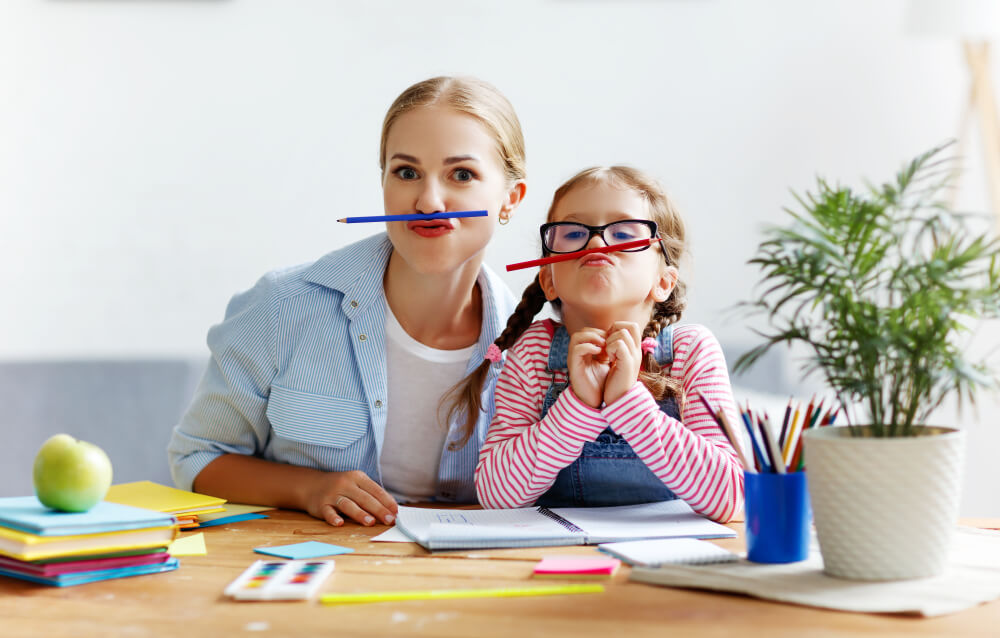Mastering Milestones: What Do Kids Learn in Kindergarten?
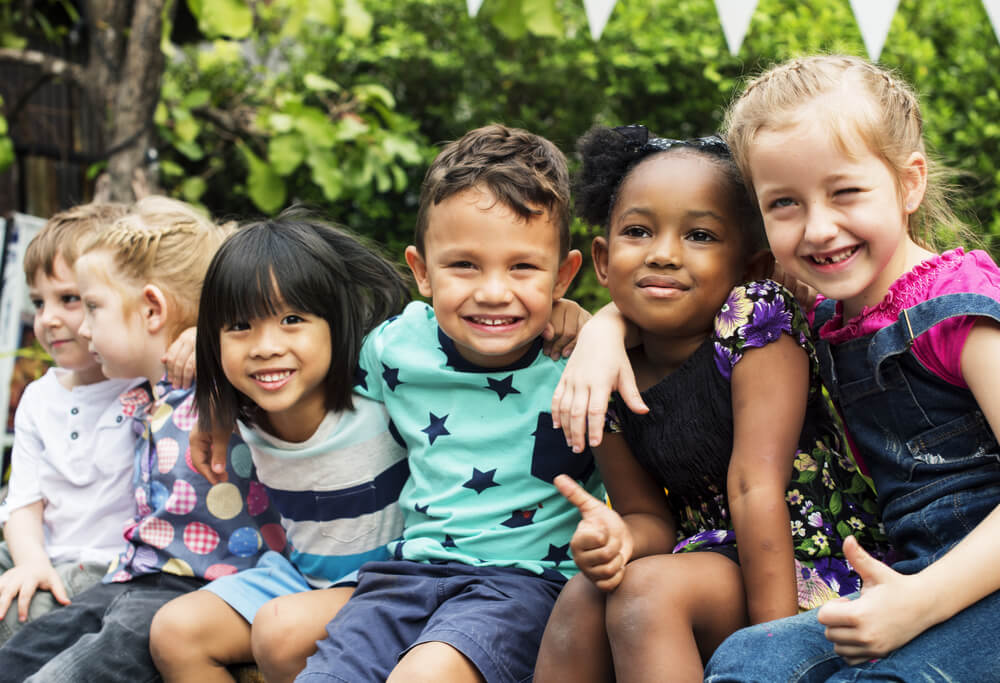
Kindergarten learning goals mark an exciting milestone for kids as they begin their education journey and develop important, life-long skills. But what do kids learn in kindergarten exactly, and how can you ensure your child is on track to meet educational milestones?
This article will dive into the major topics and skills your child will learn in kindergarten, along with helpful tips to keep your child on track for a fruitful education.
Contents:
- What Do Kids Learn in Kindergarten?
- Extracurricular Activities in Kindergarten
- How Parents Can Help
- Help Your Child Get the Most Out of Kindergarten
- FAQs
What Do Kids Learn in Kindergarten?
It’s an exciting time when your child starts kindergarten, a significant step in their learning journey. As a parent, it’s natural to wonder what their days will be packed with.
So, what exactly do kids learn in kindergarten?
Letters and Sounds in Kindergarten
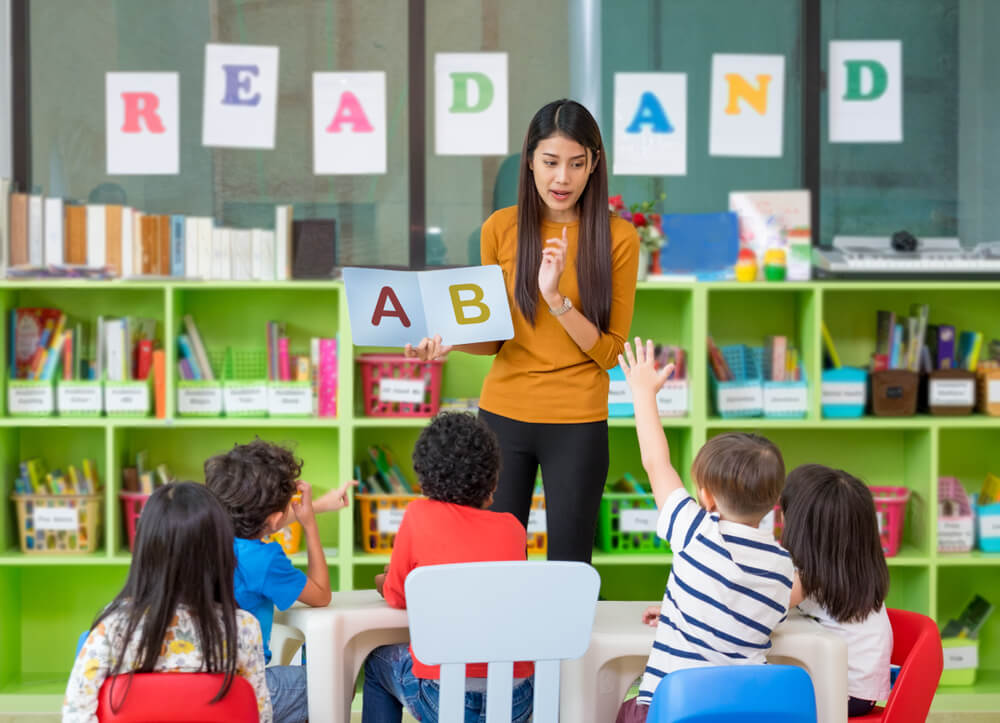
wee dezign/Shutterstock.com
In your child’s kindergarten class, they will engage with letters and the sounds they produce. They will be introduced to the marvelous world of the alphabet, discovering all 26 letters in a mix of engaging activities.
This knowledge scaffolds onto phonics—an essential reading technique. Here, kindergarteners learn to match those letters to their corresponding sounds, cementing the foundation for successful reading.
By sounding out letters and words, these youngsters start to connect the pieces of language, transforming symbols into words, and abstract concepts into tangible understanding.
Teachers often use fun tools such as alphabet songs, letter recognition games, and play-based learning activities to build both language development and early cognitive skills.
Writing in Kindergarten
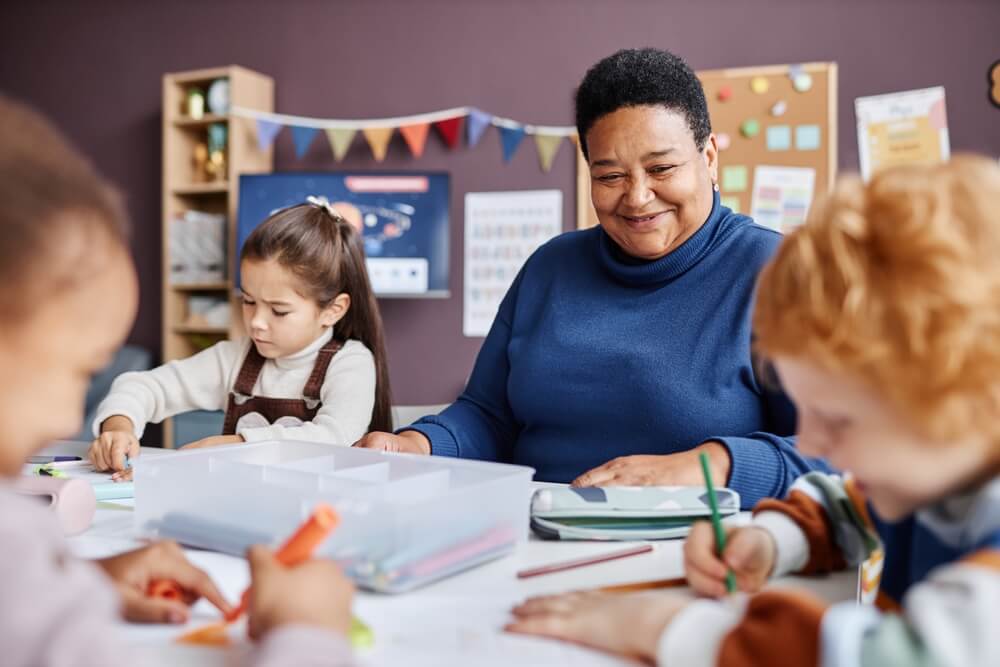
SeventyFour/Shutterstock.com
In kindergarten, your little one will take their first steps into the world of writing. Here, they’ll learn how to write their own names, an exciting milestone indeed. Being able to write their name is one of the most significant kindergarten goals.
This skill is built upon a foundational understanding of the alphabet, so expect them to practice writing each letter of the alphabet, too.
Remember, this isn’t just about putting pen to paper. It’s also about understanding—recognizing, for instance, between uppercase and lowercase letters.
Writing also strengthens fine motor skills, helping children develop better hand coordination and control. Teachers may incorporate motor skills games, drawing, or tracing letters to support this physical development.
Reading in Kindergarten

Sergey Novikov/Shutterstock.com
Imagine your little one, sitting with a small book in their hands, sounding out words and piecing together sentences. That’s what you can expect from their time learning in the kindergarten curriculum.
Young learners begin their exciting journey into reading. They start simple, learning to combine different letter sounds, or phonemes, to shape the words we use daily. It’s like assembling a puzzle, but instead of pieces, they’re using sounds!
Sight words are another essential ingredient in their reading concoction. These are words that often can’t be sounded out and need to be recognized on sight. Words like ‘the,’ ‘and,’ and ‘it,’ among others, fall into this category.
Teachers utilize games, flashcards, and repetitive reading exercises to help children become familiar with these words.
And then comes the moment every parent eagerly awaits—the first time their child reads an entire sentence independently. Simple sentences, usually comprised of sight words and easy-to-sound-out words, are the kindergarteners’ first steps into independent reading.
Reading practice fosters communication skills and social-emotional skills as kids share stories aloud, engage in discussions, and build confidence in their language development.
Prepare to celebrate plenty of these precious ‘aha’ moments throughout their kindergarten year as the magic of reading unfolds.
Numbers and Counting
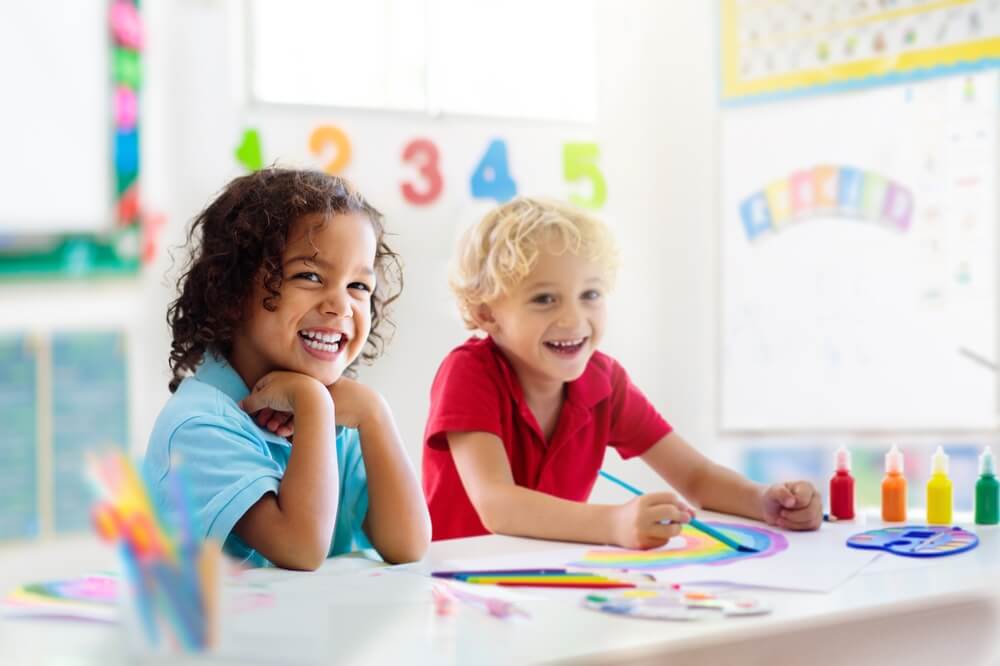
FamVeld/Shutterstock.com
What should kindergarteners know about numbers and math? The foundation for mathematics starts forming at this very stage.
Your little kindergartener begins their journey by learning to count up to 20, which might not seem like a big deal, but it’s a huge leap in their cognitive development. They get introduced to the captivating world of numbers.
Counting games, basic addition and subtraction, and play-based learning and math activities keep lessons fun while building essential cognitive skills.
Aside from just counting, they’ll learn to recognize numbers, starting with single digits and building up to double digits. They will also be taught to perform simple arithmetic operations like addition and subtraction within modest limits.
Understanding numbers isn’t merely about reciting them; it’s about comprehending what they signify. Kindergarteners come to terms with the concept of quantities.
Shapes and Objects
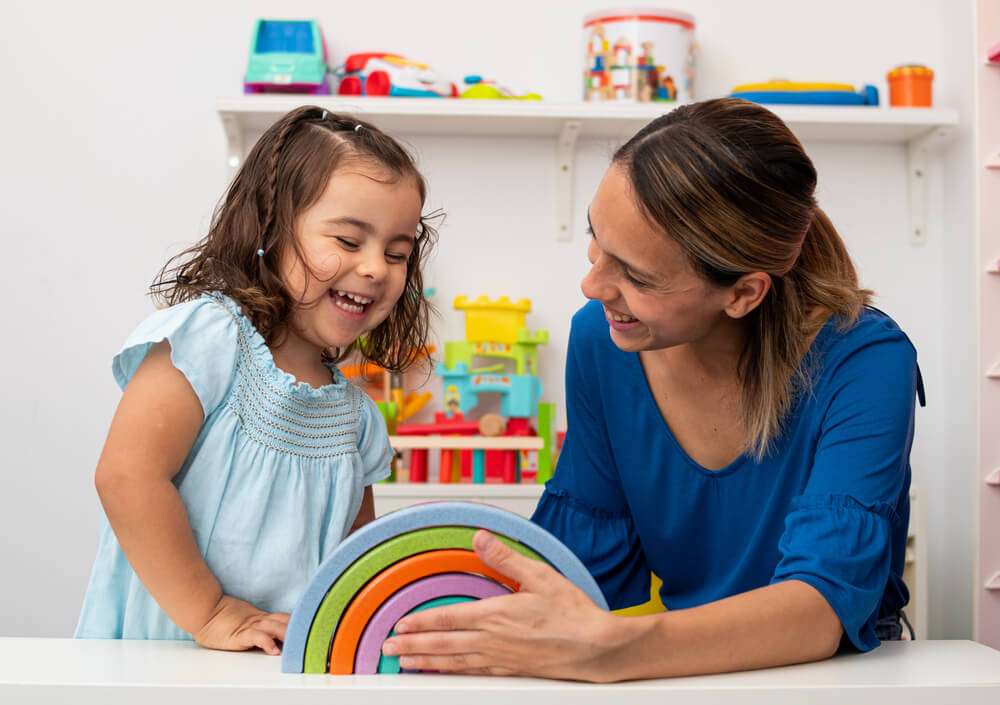
Juan Brian Diaz Hernandez/Shutterstock.com
At this age, kids are like little explorers. In kindergarten classes, they start identifying and distinguishing between various shapes and objects, both two-dimensional and three-dimensional. Circles, squares, triangles, and rectangles become familiar figures.
Teachers may connect this with social studies and creative arts, where children draw, paint, or build models of everyday objects. This blend of learning strengthens problem-solving and social development.
Your kindergartener will start recognizing these shapes in the world around them. Spotting a round moon or a rectangular door suddenly becomes fascinating.
This fundamental knowledge not only aids in cognitive development but also forms the groundwork for future lessons in geometry and spatial sense.
Time and Seasons
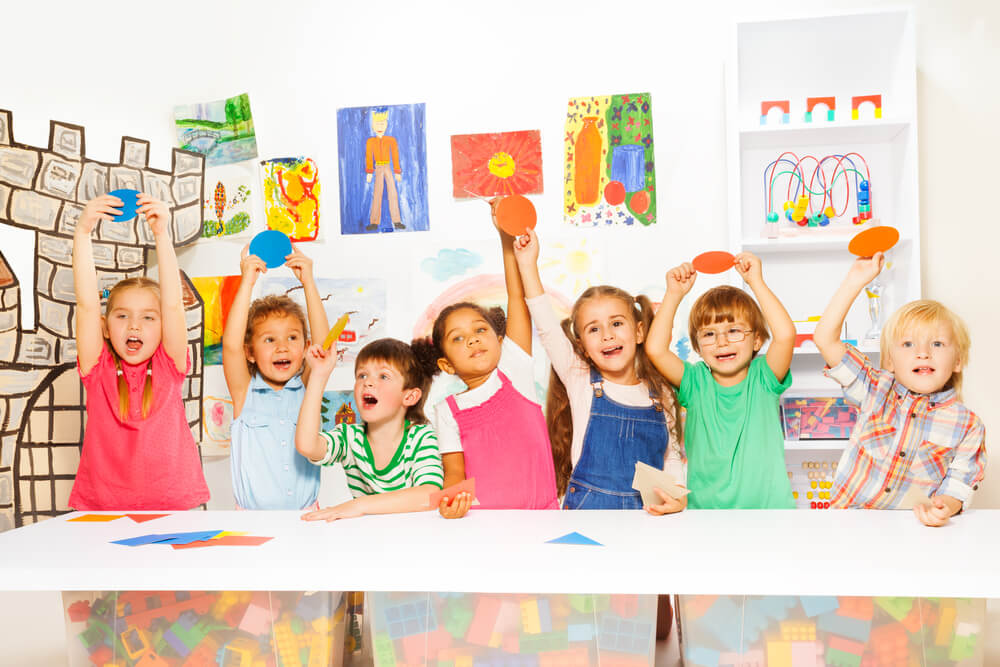
Sergey Novikov/Shutterstock.com
One core expectation at the kindergarten level is that children gain a sense of time and seasons, comprehending the basic building blocks of how our days and years are structured.
This area of early childhood education often includes role-play, seasonal art projects, and social and emotional learning activities that encourage children to express how changes in weather or daily routines make them feel.
This learning extends to understanding the difference between certain periods, such as morning, afternoon, and night. These concepts are typically introduced through daily routines, storytelling, and class activities.
But it’s not just about the hours in a day. Kindergarten learners are also guided to grasp the concept of seasons throughout the year.
They’ll learn to identify and differentiate between spring, summer, autumn, and winter, alongside the unique traits of each. Learning about the different seasons can lead to a better appreciation of the natural world.
Activities might include drawing pictures of seasonal variations, discussing weather changes, or observing and describing nature throughout the year.
Social Skills
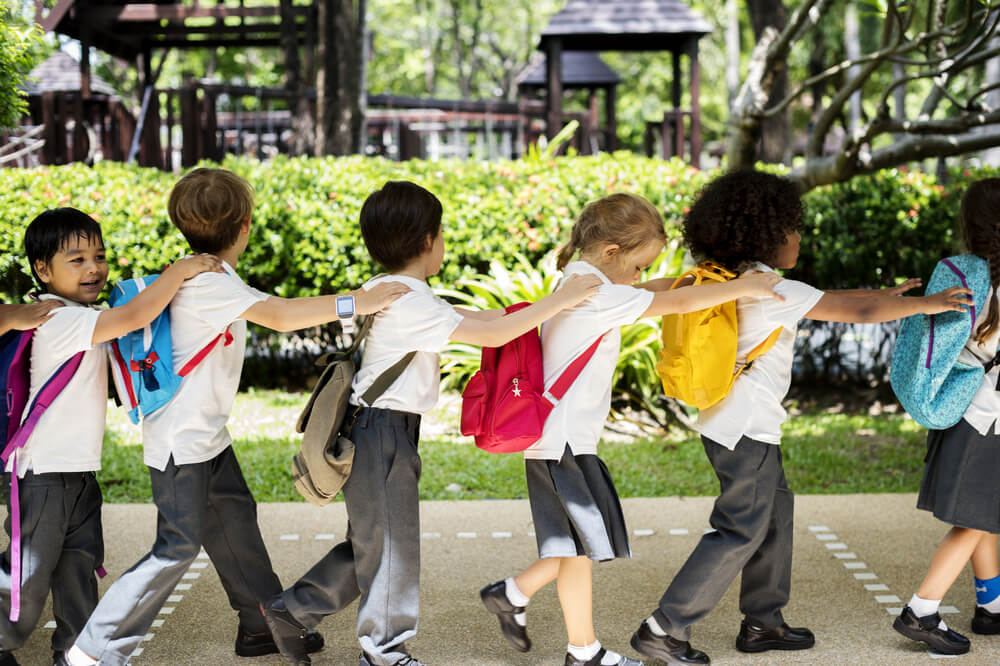
Prostock-studio/Shutterstock.com
While not necessarily part of the kindergarten learning syllabus, the most vital aspect of your child’s kindergarten experience is developing social skills.
At this early stage, kindergarteners start laying the groundwork for essential interpersonal abilities that will serve them throughout their lives.
The classroom environment encourages communication—children learn how to express their thoughts, ask questions, and engage in conversations with both their peers and adults.
Social-emotional skills such as cooperation, forgiveness, and empathy are nurtured daily. Emotional development is closely tied to these lessons, teaching children how to manage feelings and build positive relationships.
Sharing is a key part of the landscape as they discover the importance of turn-taking and cooperation during play and learning activities.
Next, kindergarteners are taught the value of forgiveness. They learn that everyone makes mistakes and that it’s okay to apologize and forgive when conflicts occur.
Learning to appropriately express emotions is another central skill developed in kindergarten. Teachers guide and teach them to understand their feelings and express them in a respectful, acceptable way.
These are the fundamental social skills that start to form during the kindergarten year, equipping your child with the tools necessary for future success in social interactions.
Extracurricular Activities in Kindergarten
Apart from the standard school topics and subjects, such as reading, science, and math, you can expect your kindergartener to participate in extracurricular and fun activities during their day.
While your child starts their educational journey, they should still be encouraged to have fun at school. These may include music, physical development through gross motor skills activities like running or jumping, or creative arts projects that encourage imagination. Extracurricular activities complement core kindergarten learning goals and provide well-rounded growth.
Ensure your child’s safety and stay connected in kindergarten! Elevate their learning experience with the Findmykids app and the Pingo GPS watch. Keep a watchful eye on their activities and enjoy peace of mind while fostering their educational journey.
How Parents Can Help
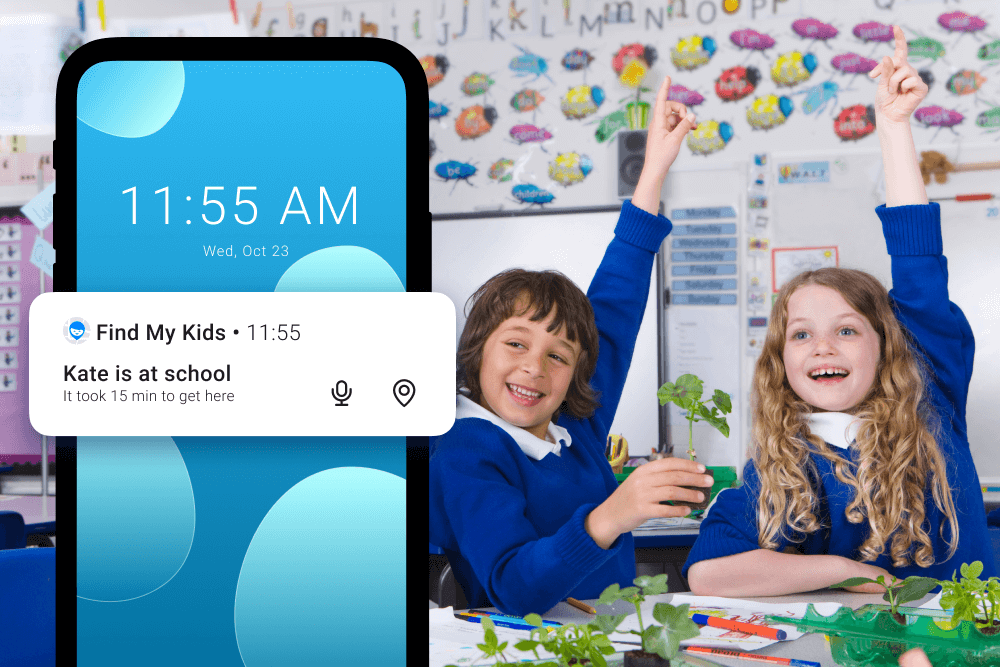
Findmykids app
Helping your kindergartener solidify their learning outside of class can dramatically enhance their progress.
- Make reading a routine at home and provide plenty of opportunities for creativity through drawing and writing. Incorporate number counting and shape recognition into daily tasks.
- Discuss time concepts through everyday situations and encourage your child to express their feelings and thoughts, to nurture their social skills.
- Join in their excitement for learning, celebrate their successes, and provide support during struggles. Ask them about what they learned in school each day.
- At home, encourage alphabet songs, counting games, and play-based learning activities. These not only reinforce academic concepts but also strengthen motor skills and emotional development.
- This high frequency of interest and questions helps them solidify their education, and what they learn will build a stable foundation for their education.
- Don’t forget to enhance your involvement in your child’s kindergarten experience with the Findmykids app and Pingo GPS watch. Stay informed about their activities, location, and well-being, ensuring a seamless connection between you and your little one. These tools provide valuable insights to help you actively participate in your child’s learning journey and create a safer and more enriching environment for them.
Help Your Child Get the Most Out of Kindergarten

Africa Studio/Shutterstock.com
While your child spends a year attending kindergarten, it’s your responsibility as a parent to ensure they meet the necessary milestones and goals at the end of the year.
Understanding the things taught in the kindergarten curriculum will help you gauge your child’s learning progress. If they are not meeting certain milestones, then it’s important to communicate with their teacher and strategize how to help your child reach their goals.
If you found this article helpful in understanding what is taught in kindergarten, make sure to share it with other parents to help them jumpstart their child’s education and keep them on track.
FAQs
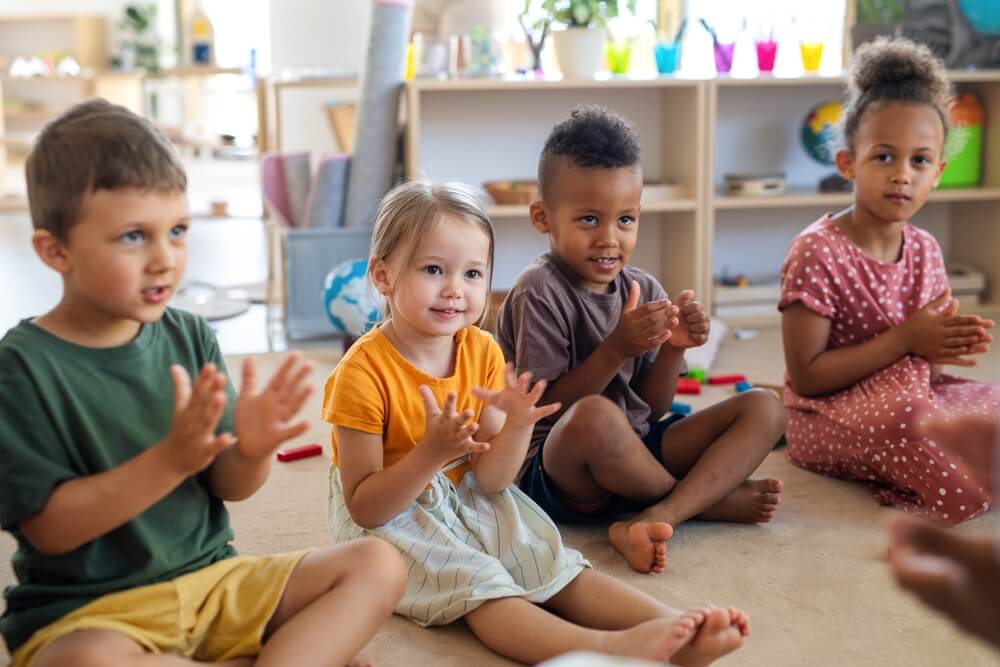
Ground Picture/Shutterstock.com
What is a child expected to learn in kindergarten?
Children are expected to learn the alphabet, count to 20, recognize sight words, understand the concept of time, identify shapes, and develop important social skills.
What should a kid know at the end of kindergarten?
Kids should know the fundamentals of math, reading, writing, and concepts of time at the end of kindergarten.
What should a kid know going into kindergarten?
Going into kindergarten, kids should know how to count to ten, hold a pencil, understand directions, identify some shapes, and have basic social skills.
What should a 5-year-old know academically?
Academically, a 5-year-old should know the alphabet, simple addition and subtraction, concepts of time, write their name, and read simple sentences.
What is the main purpose of kindergarten?
The main goal is to build a strong foundation in early childhood education—academics, communication skills, fine motor skills, and social-emotional growth.
What do kindergarteners learn in a day?
A day often includes reading, writing, counting games, creative arts, play-based learning, and extracurricular activities for social-emotional learning.
The picture on the front page: Rawpixel.com/Shutterstock.com
Проверьте электронный ящик














